How to fix a door that sticks – repair your door to full working order
The easiest ways to fix a sticking door so that it can open and close freely again


Sign up to our newsletter for style inspiration, real homes, project and garden advice and shopping know-how
You are now subscribed
Your newsletter sign-up was successful
EDITOR’S NOTE: An earlier version of this article included a quote from a purported expert whose credentials we have not been able to verify. The quote has been removed. We regret this lapse in our verification process and have updated our internal protocols to reduce the risk of recurrence.
A sticking door is irritating to say the least, but the good news is that you can learn how to fix a door that sticks yourself, and it's likely one of the more straightforward DIY jobs on your to-do list.
If you're not quite ready to go shopping for a new front door, it's worth learning how to fix a door that sticks so that you can keep your current doors but enjoy them in full working order.
'Having a door that sticks can be a major problem in the home, and can often cause other issues such as ruined flooring and a damaged door frame', says Tim Warren, Joinery Expert, Adkwik. 'Making sure to fix a sticking door as soon as possible is essential to ensure that no other problems occur and that your DIY work can be as minimal as possible.'
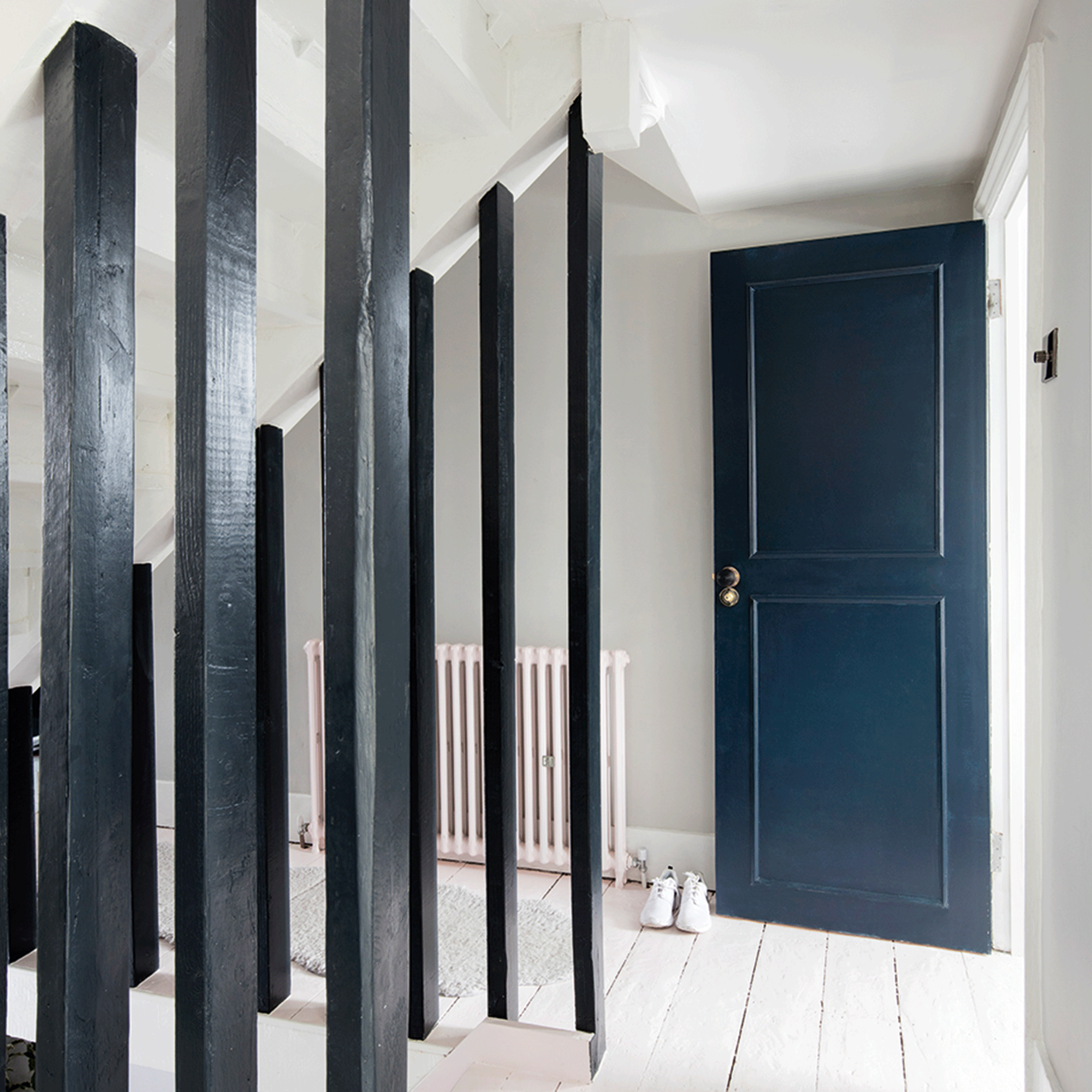
How to fix a door that sticks
We've rounded up expert advice to create an easy to follow guide which will show you how to fix a door that sticks in six steps. You may not need to complete all the steps in this guide to stop your door from sticking, or you may find you have to perservere and try them all. Eventually though, your door will be opening and closing smoothly again and you won't have to worry about it sticking in the future.
To fix a sticking door, the primary tool you'll need is a screwdriver. Depending on the problem, you may also need spare (longer) screws, oil, paint, or sandpaper.
1. Identify the problem
When you come to fix a door that is sticking, the first thing to do is identify the sticking point. You can do this by closing the door and wedging a thick piece of card between the door and the frame. Move it around all the edges of the door. This should help you identify what is causing the door to stick, which will in turn determine what you need to do the fix the problem.
2. Lightly oil the hinges, edges and latch
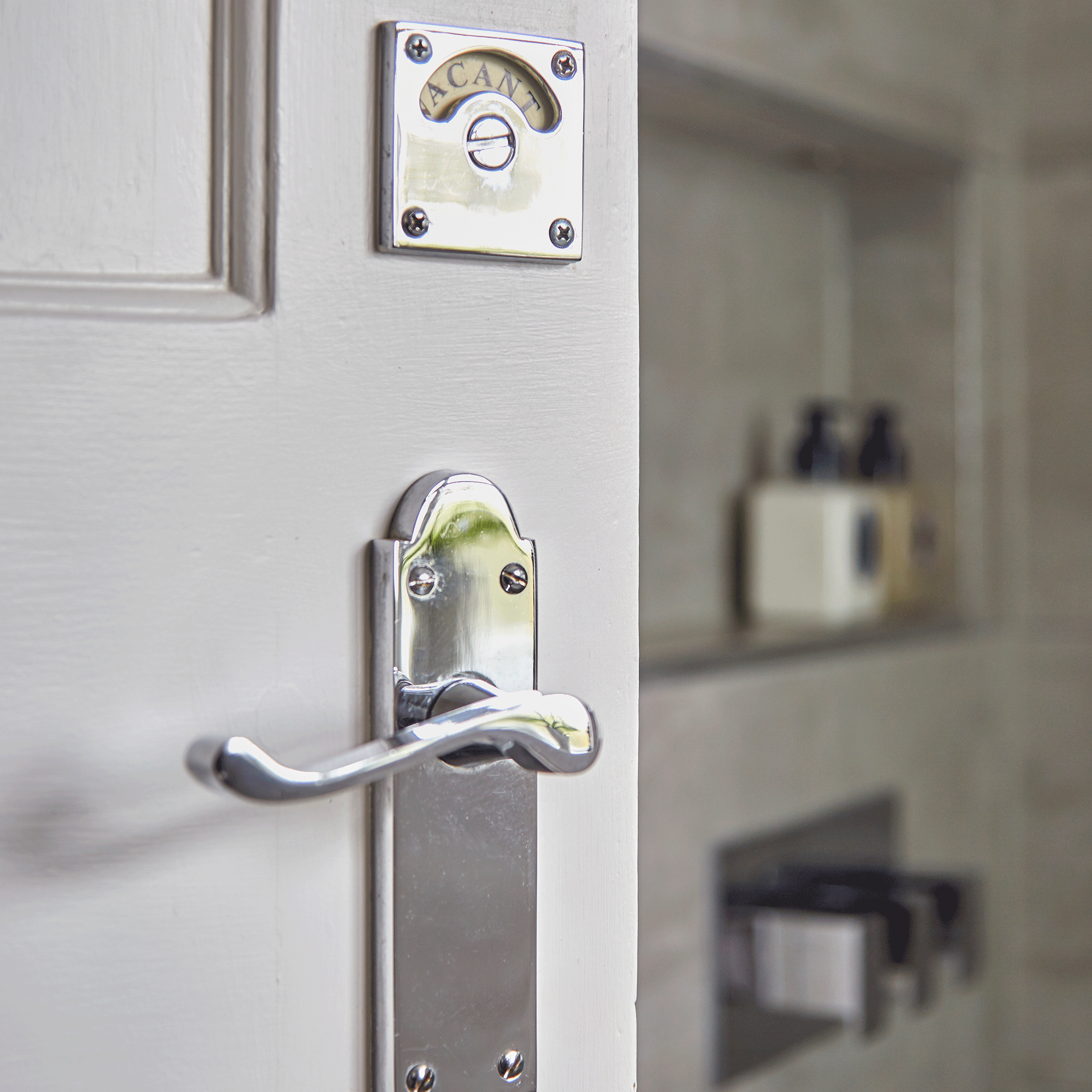
If something on the surface is causing the door to stick, wiping round it with a cloth or wet wipe will solve the issue. Adding oil to the hinges, such as olive or coconut oil, will then act as a helpful lubricant to reduce the friction between the door and its frame, so it can close freely.
Sign up to our newsletter for style inspiration, real homes, project and garden advice and shopping know-how
If you are using a cooking oil on the hinges, apply only a small amount, as they can attract dust and grime.
3. Tighten up the hinges
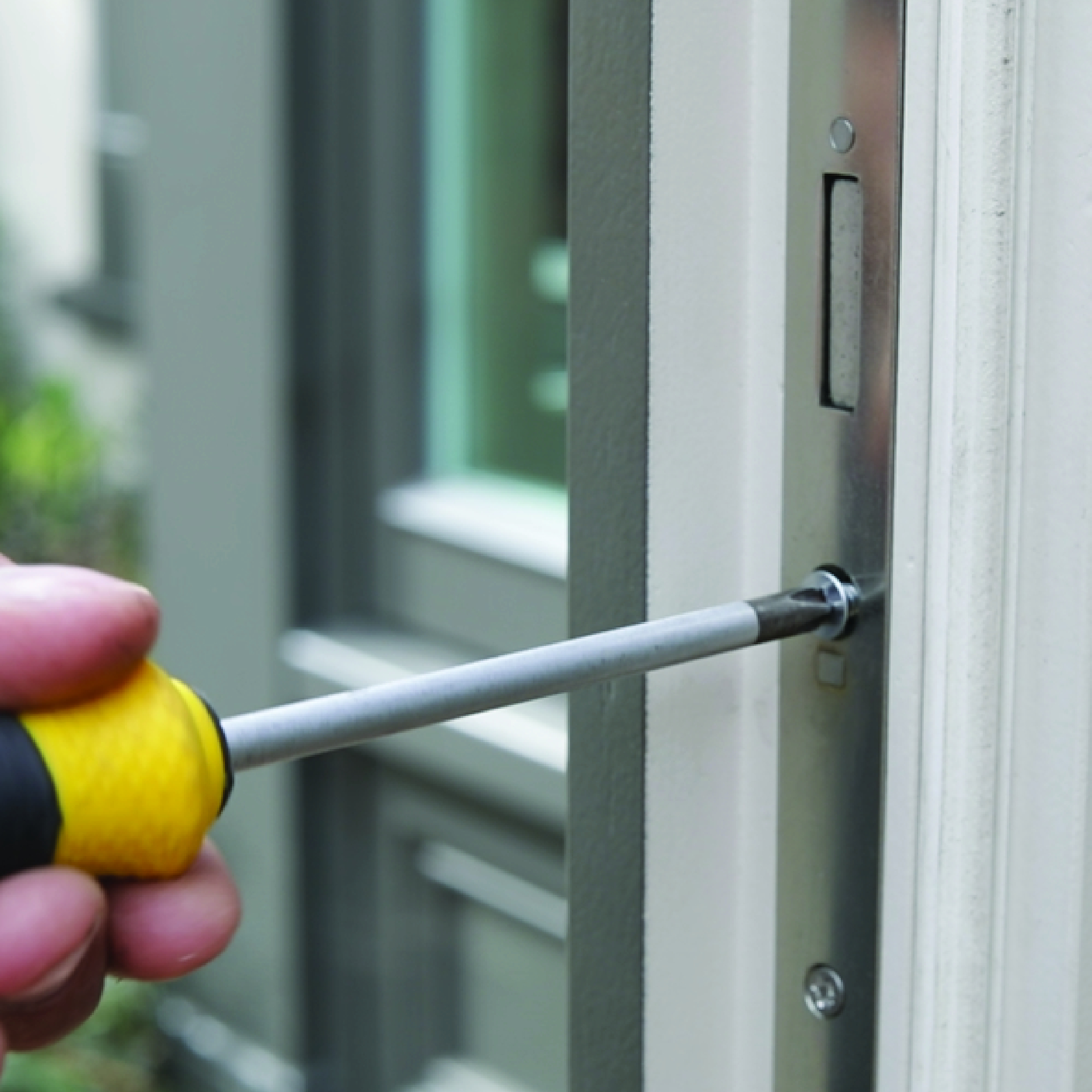
If you find it difficult to move the card in one or two places, or you notice the door's edge hitting the frame when you close it, it’s likely some movement has occurred when installing the door. Tightening the screws on the bottom, middle or top hinge should fix this.
It’s best to use a hand screwdriver to fix this issue because you’ll have much better control, as hinge screws are quite small and may be prone to breaking.
Avoid over-tightening the screws as this could break them.
3. Tighten up the strike plate
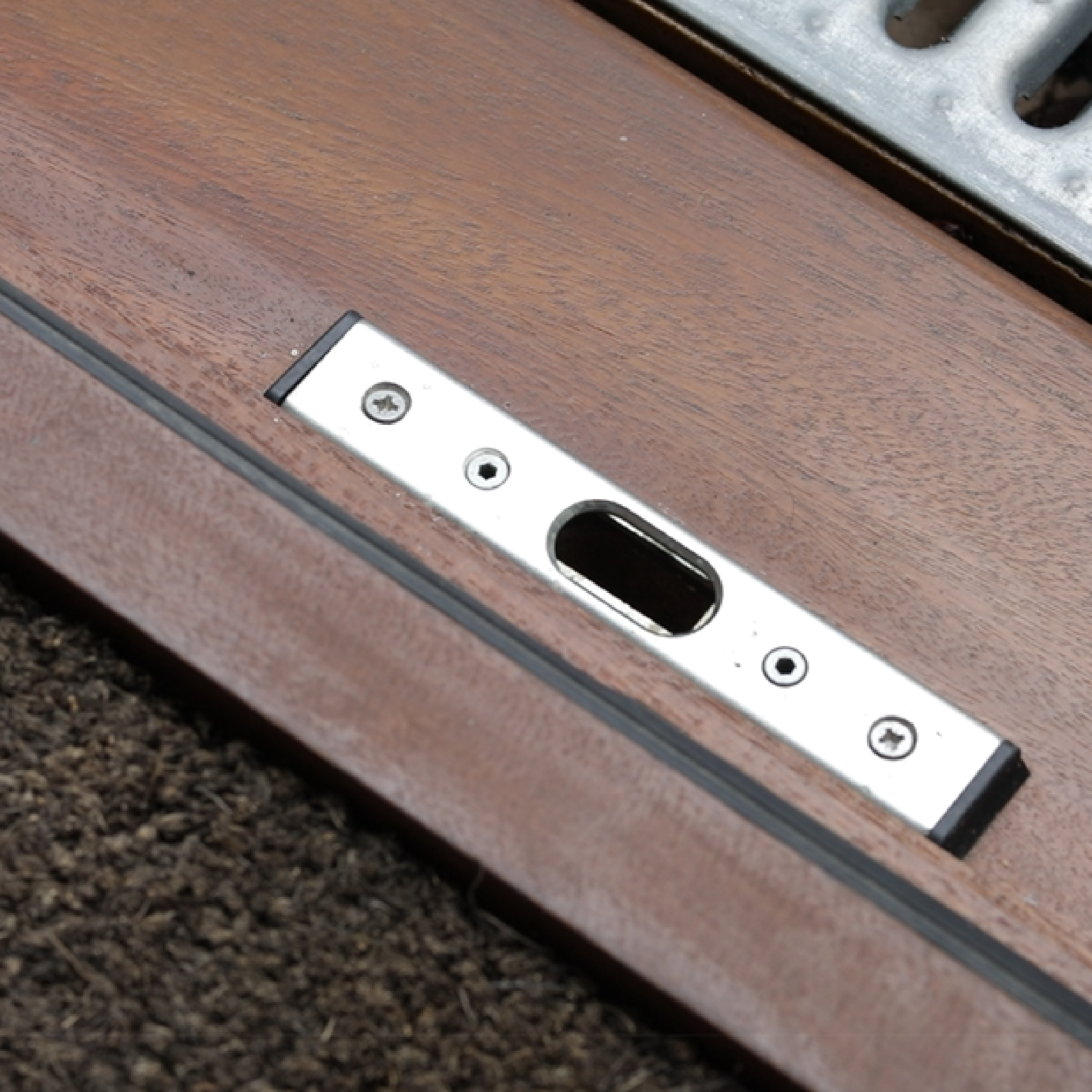
The strike plate sits on the inside of the door frame to meet the latch when it closes, and is worth tightening when you come to fix a door that sticks. Use a screwdriver to tighten any loose srews, and do the same for the metal plate holding the latch as well.
4. Add some longer screws
If the screw keeps turning but won’t tighten, you may need some longer screws. If this is the case, get some longer screws from any hardware or DIY store and use them in place of the original screws.
Next, remove the centre screw from the jamb side of the top hinge and replace this with a 3-inch wood screw. This should be enough to pull the door jamb closer to the door frame, rectifing the swing problem.
5. Seal the door
If all the hinges are tight, and your door is wooden and only sticks occasionally, the problem may be due to swelling.
Use a dehumidifier to help dry the door out. Then, seal it with a suitable coat of paint, varnish or oil (check containers for specifications) to prevent further swelling.
6. Lightly sand the door
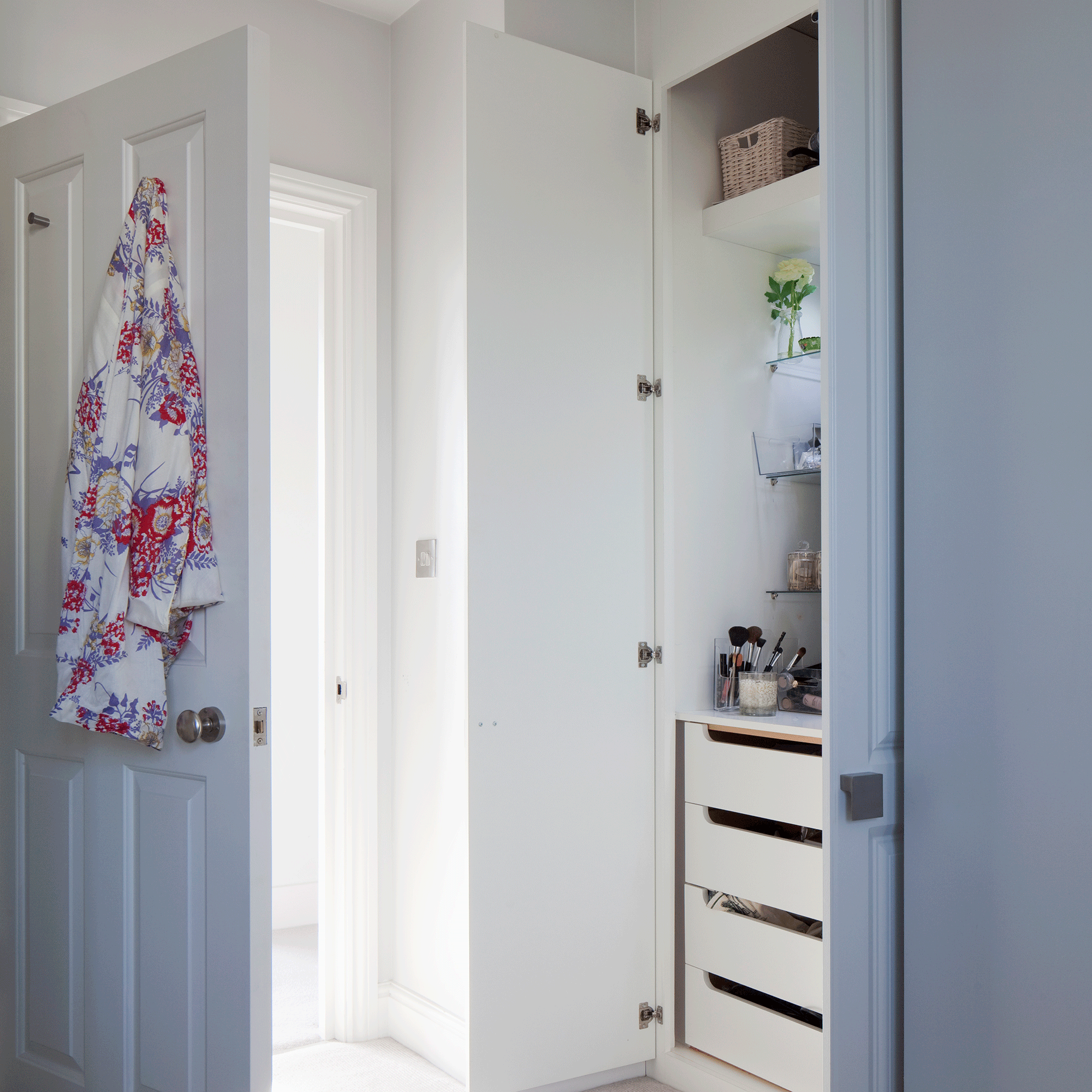
There should be an even gap between the door and the door frame of 3-5mm. If there isn't enough of a gap in some parts, you'll need to lightly sand the door in these places to stop the door from sticking.
Mark on the door in pencil the areas that need sanding down. Thomas advises to sand the door out of the frame. 'To remove the door safely, you’ll need to clear some space and use an extra pair of hands. Detach the hinges by removing the pins. Tapping them with a nail and hammer should help. Place shims at the bottom of the door to take the weight as you work. Then carefully move it out of the frame.'
Once the door is out of the frame, use a suitable sandpaper to remove the excess material from the door edges, up to your marked lines. Choose a sandpaper with a grit between 60 and 80, as this will have a rough enough edge to get the job done. Once you've sanded down to an even finish, reattach the door to its hinges.
How do I get my door to stop sticking?
Tightening up the hinges is usually the first point of call when learning how to fix a door that sticks. 'It's likely that some movement has occurred since your door was fitted,' says Thomas. 'In most cases, your top or bottom hinge needs tightening. So, take a screwdriver and tighten up the hinge screws.'
You can also tighten the screws in strike plate on the door frame, to ensure there's no friction occurring. Lightly oiling the hinges, latch and edges of the door every once in a while will keep them nicely lubricated and prevent the door from sticking.
Regularly cleaning the door frame and hinges will stop dust and dirt building up, which can often get in the way of doors moving freely.

Katie has been writing freelance since early 2022, specialising in all things homes and gardens, following achieving a Masters in Media and Journalism. She started out writing e-commerce content for several of Future’s interior titles, including Real Homes, Gardeningetc, Livingetc, and Homes and Gardens. Since then she’s been a regular contributor on Ideal Home’s digital team, covering news topics, how-to guides, and product reviews.